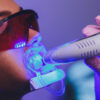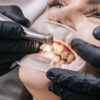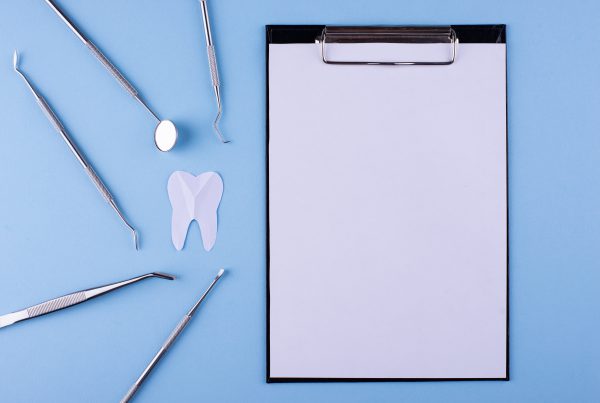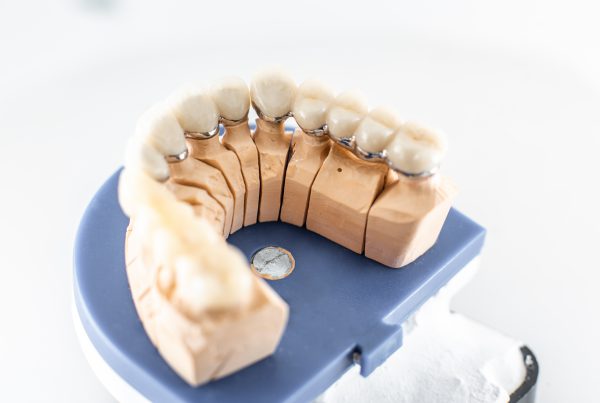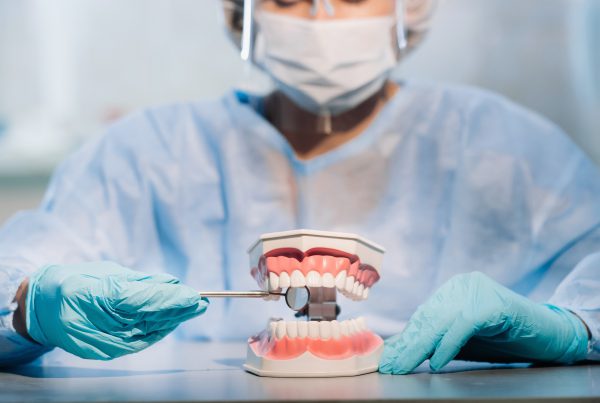What Is Dental Crown?
A dental crown is a tooth-shaped “cap” that is placed over a tooth to restore its shape, size, strength, and appearance. Dental crowns are typically used when a large cavity threatens the ongoing health of a tooth, when a cracked or broken tooth needs to be restored, or when cosmetic modifications are desired. Crowns can also be used to attach bridges, cover implants, prevent a cracked tooth from becoming worse, or an already-root canal treated tooth from fracturing. Crowns may be made from porcelain fused to metal (PFM), all metal (gold or other alloys), all ceramic/porcelain, or resin. The type of material chosen will depend on factors such as the location of the crowned tooth in the mouth and aesthetic considerations. With proper care and maintenance, dental crowns can last for many years.
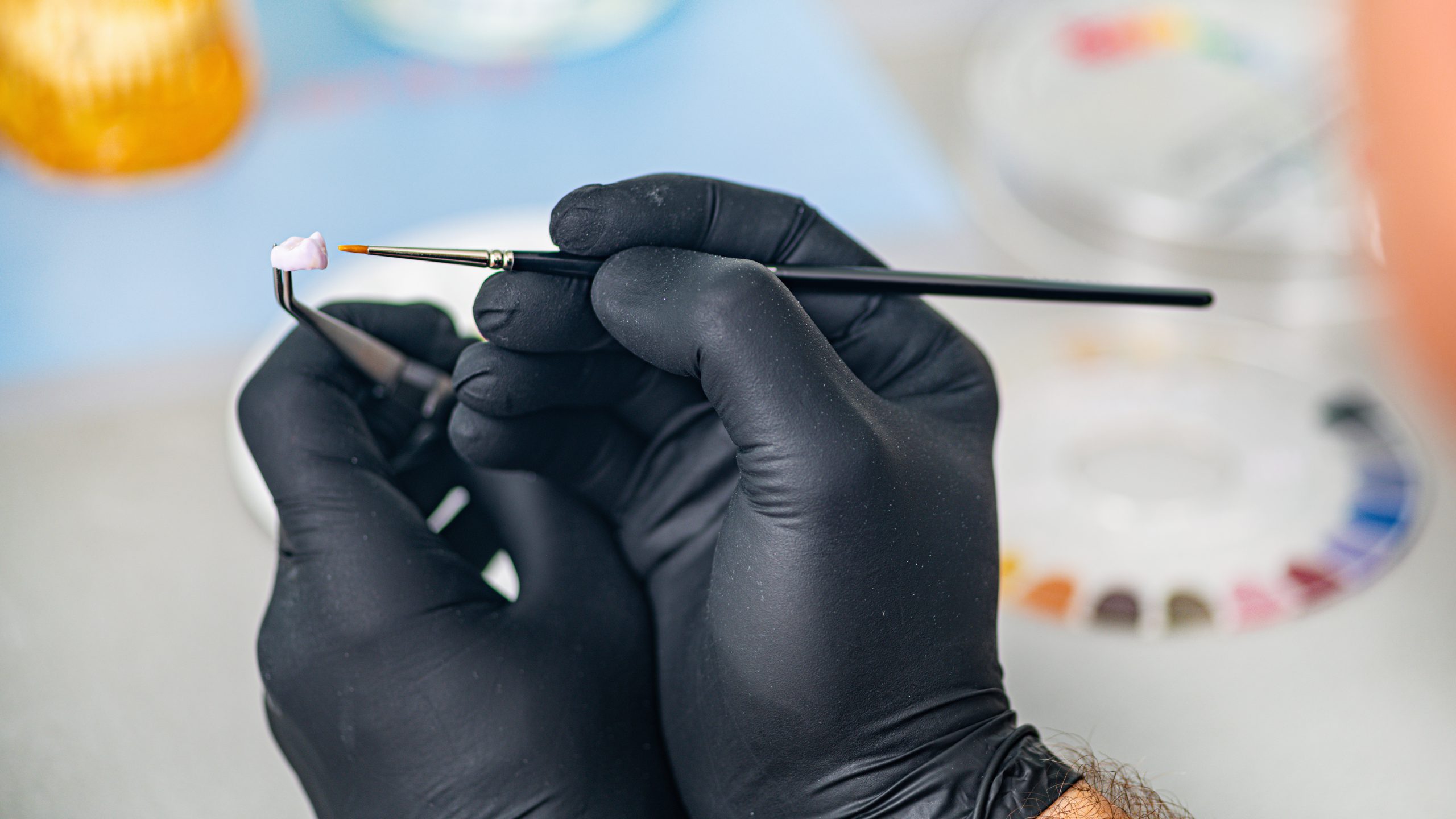
What Is The Material Dental Crowns Are Made Of?
Dental crowns are a common dental restoration used to repair damaged teeth. They are made of a variety of materials, including porcelain, metal alloys, and composite resin. Each material has its own unique advantages and disadvantages that must be considered when choosing the right crown for your smile.
Porcelain is the most popular material used for dental crowns because it is highly durable and aesthetically pleasing. Porcelain can be color-matched to blend in with the rest of your natural teeth, making it an ideal choice for front teeth or visible areas of the mouth. Porcelain also offers excellent protection against decay and other damage caused by chewing or grinding. However, porcelain crowns can chip or fracture if not cared for properly, so they require regular checkups to ensure they remain in good condition.
Metal alloys such as gold or silver are another option for dental crowns. These materials are extremely strong and durable, providing superior protection against wear and tear from chewing or grinding. Metal alloys also resist staining better than porcelain and can last up to 15 years with proper care. The downside is that metal crowns may not look as natural as porcelain ones and may cause allergic reactions in some people due to their metallic content.
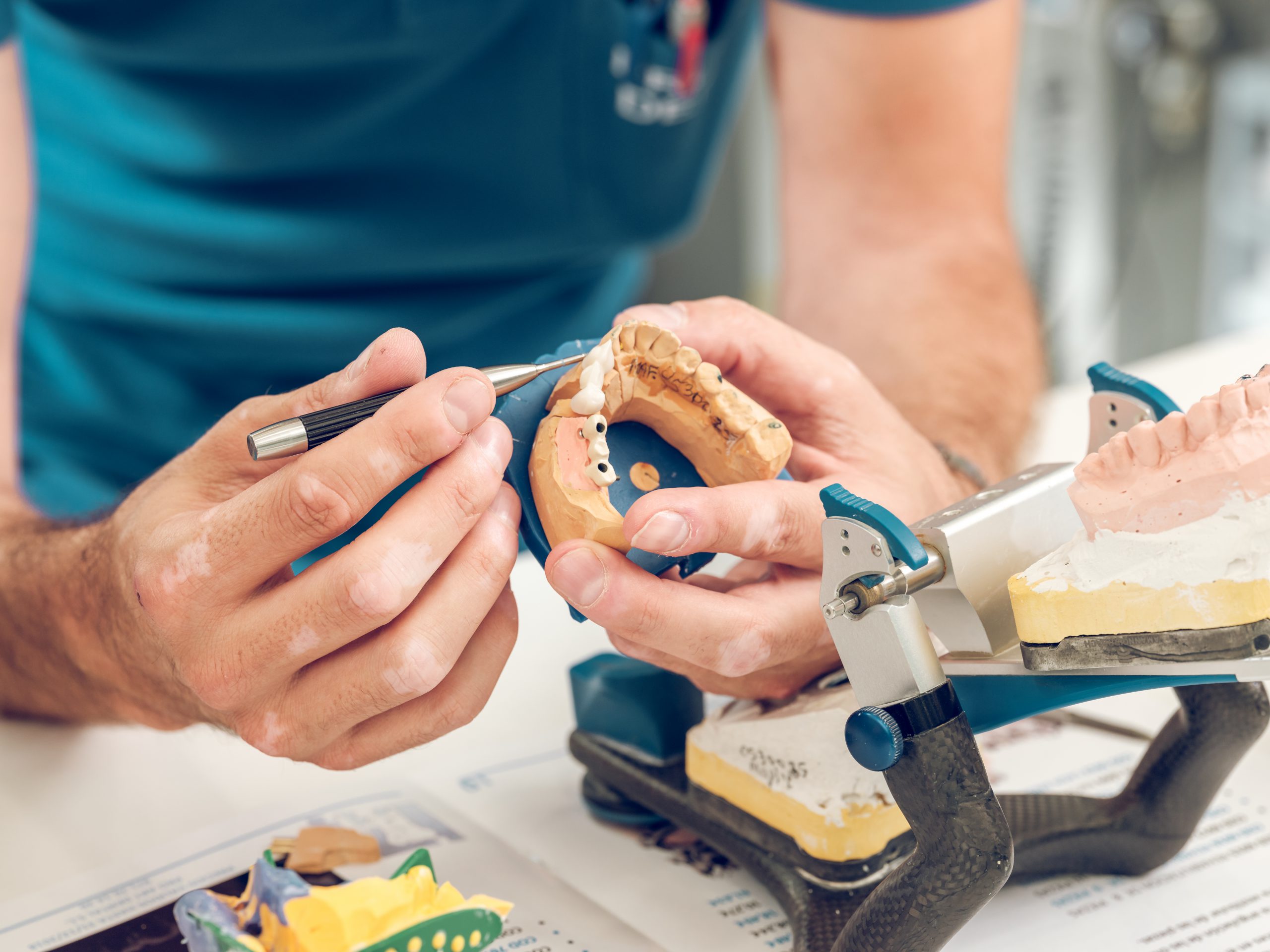
Composite resin is a newer material used for dental crowns that combines the strength of metal alloys with the aesthetics of porcelain. Composite resin can be color-matched to blend in with your natural teeth, making it an ideal choice for front teeth or visible areas of the mouth. It also resists staining better than porcelain but is not as strong as metal alloys, so it may need to be replaced more often than other materials depending on how much wear and tear it receives from chewing or grinding habits.
When deciding which material is best for your dental crowns, it’s important to consider your lifestyle and budget as well as any allergies you may have before making a decision. Your dentist will help you weigh the pros and cons of each material so you can make an informed decision about which one will work best for you. With proper care, any type of dental crown can provide long-lasting protection against decay and other damage caused by chewing or grinding habits while helping you maintain a beautiful smile!
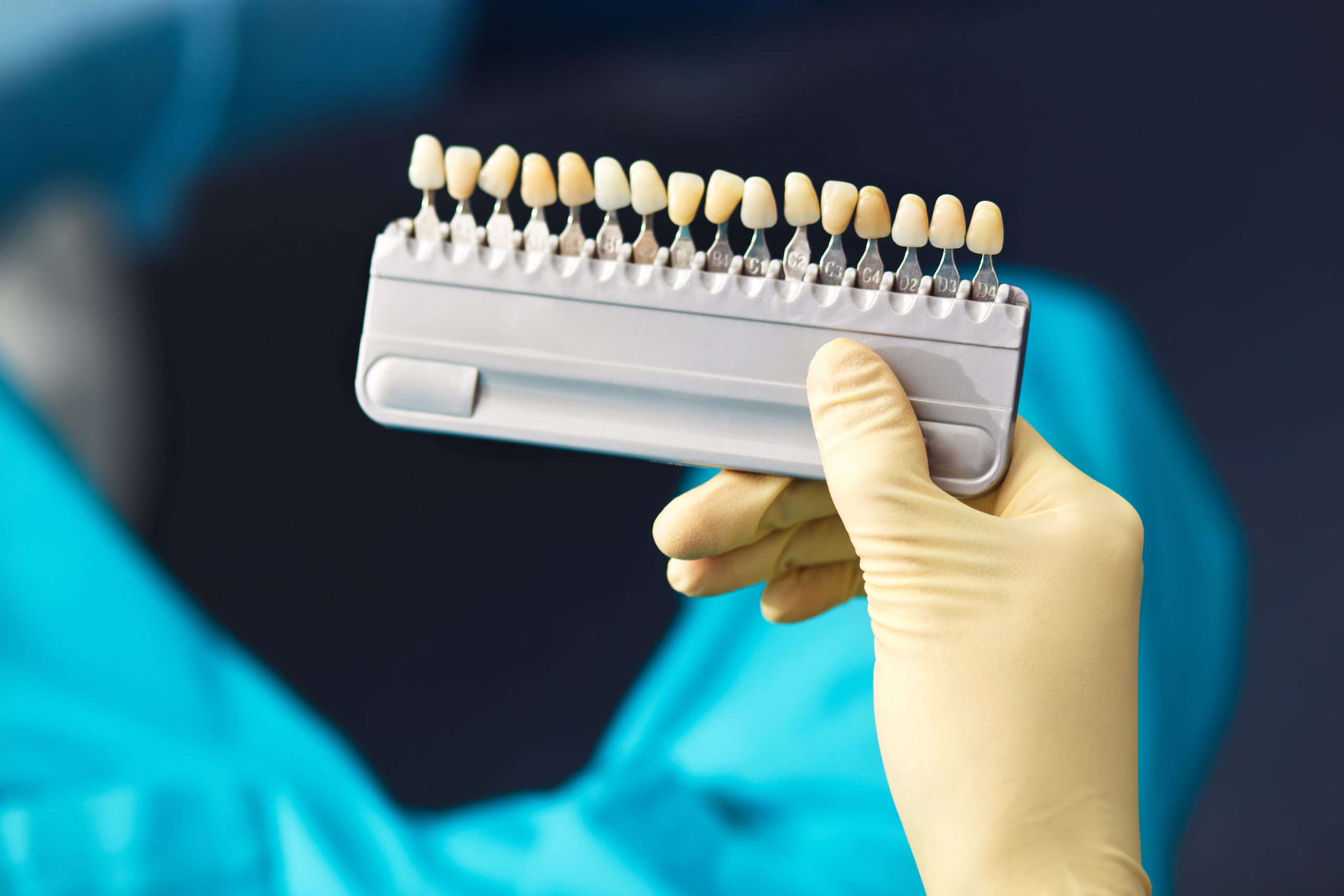
What Is The Average Price Of Dental Crown?
The average price of a dental crown can vary greatly depending on the type of material used and the location of the dentist. Porcelain-fused-to-metal (PFM) crowns are usually the most affordable option, costing anywhere from $800 to $1700 per tooth. Gold crowns are typically more expensive, ranging from $1,500 to $2,500 per tooth. Resin crowns tend to be the least expensive option, costing between $600 and $1,000 per tooth.
When considering the cost of a dental crown, it is important to remember that many insurance plans will cover at least part of the cost. Many plans will cover up to 50% of the cost for a PFM or gold crown and up to 80% for a resin crown. It is also important to note that some dentists may offer discounts or payment plans for those who cannot afford to pay out-of-pocket. Additionally, if you need multiple teeth crowned at once, your dentist may offer a discounted rate for multiple procedures. Ultimately, it is best to discuss your options with your dentist in order to determine what kind of coverage you have and what kind of discounts they may be able to offer you.
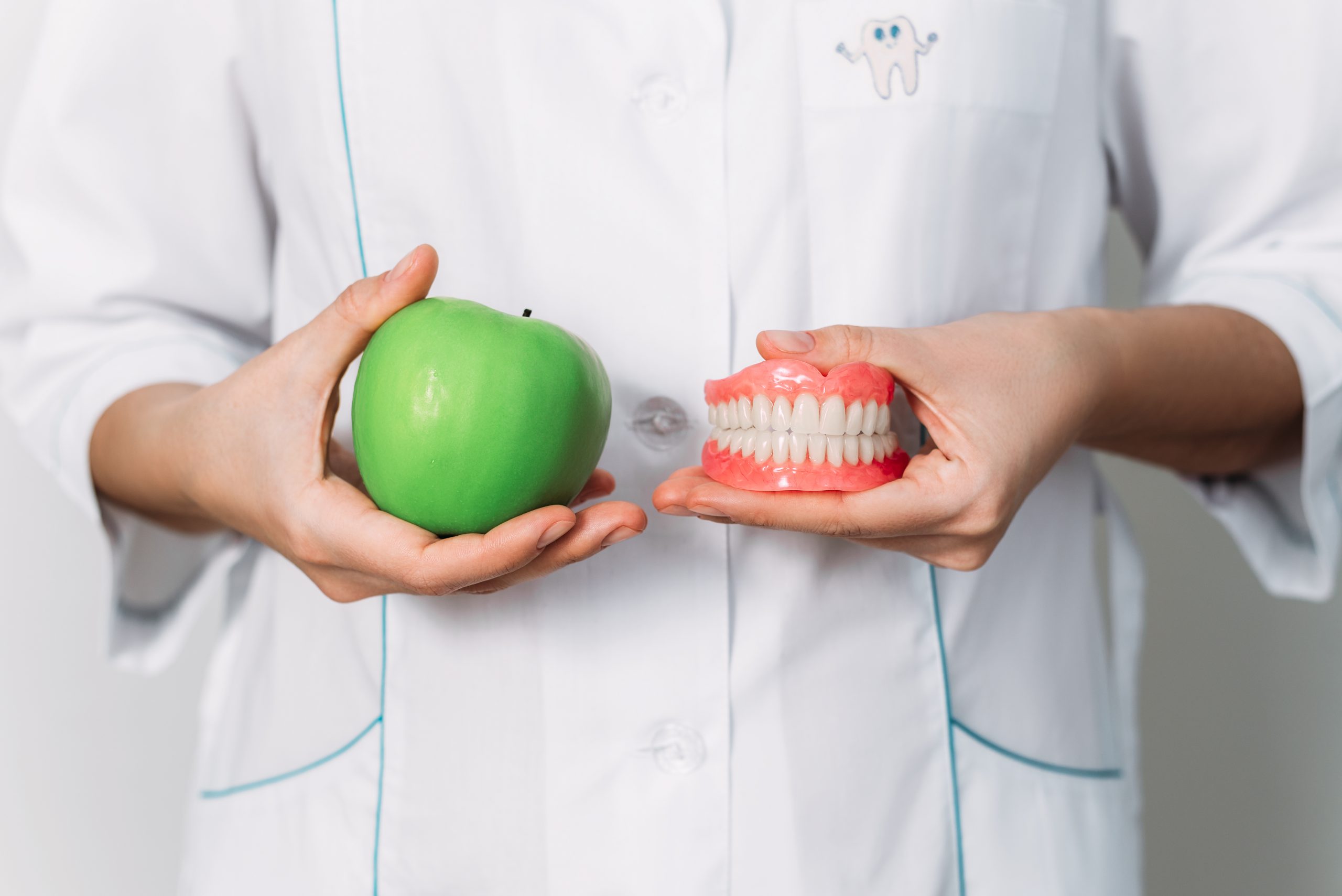
How A Dental Crown Should Be Cared?
A dental crown is a restoration that covers the entire visible surface of a tooth, restoring it to its original shape and size. It is an important part of dental care and should be taken care of properly in order to ensure long-term success. Here are some tips on how to care for your dental crown:
1. Brush and Floss Dental Crown Regularly:
The most important thing you can do to take care of your dental crown is to brush and floss regularly. This will help remove plaque and bacteria from around the crown, preventing decay and gum disease. Be sure to use a soft-bristled toothbrush and fluoride toothpaste, as well as flossing at least once a day.
2. Avoid Chewing Hard Foods:
Dental crowns are strong but they can still be damaged if you chew hard foods like ice or hard candy. To protect your crown, avoid chewing these types of foods or using your teeth as tools (such as opening bottles).
3. Visit Your Dentist Regularly:
It’s important to visit your dentist regularly for checkups and cleanings so they can make sure your crown is in good condition. During these visits, your dentist may also take X-rays to check for any signs of decay or damage beneath the crown.
By following these tips, you can ensure that your dental crown remains in good condition for many years to come. Taking proper care of your dental crown will help protect it from damage and keep it looking great for years to come!


